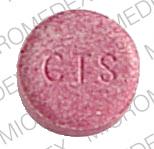Acetaminophen/pseudoephedrine Interactions
There are 374 drugs known to interact with acetaminophen/pseudoephedrine, along with 9 disease interactions, and 3 alcohol/food interactions. Of the total drug interactions, 29 are major, 305 are moderate, and 40 are minor.
- View all 374 medications that may interact with acetaminophen/pseudoephedrine
- View acetaminophen/pseudoephedrine alcohol/food interactions (3)
- View acetaminophen/pseudoephedrine disease interactions (9)
Most frequently checked interactions
View interaction reports for acetaminophen / pseudoephedrine and the medicines listed below.
- Abilify (aripiprazole)
- Acetaminophen PM Extra Strength (acetaminophen / diphenhydramine)
- Actigall (ursodiol)
- Advair Diskus (fluticasone / salmeterol)
- Advil (ibuprofen)
- Aleve (naproxen)
- Ativan (lorazepam)
- Bactrim (sulfamethoxazole / trimethoprim)
- Benadryl Allergy (diphenhydramine)
- Celexa (citalopram)
- Cymbalta (duloxetine)
- Fish Oil (omega-3 polyunsaturated fatty acids)
- Flexeril (cyclobenzaprine)
- Keflex (cephalexin)
- Lyrica (pregabalin)
- Maxalt (rizatriptan)
- Neurontin (gabapentin)
- Nexium (esomeprazole)
- Pepto-Bismol (bismuth subsalicylate)
- Prilosec OTC (omeprazole)
- Seroquel (quetiapine)
- Tylenol (acetaminophen)
- Valium (diazepam)
- Vitamin B12 (cyanocobalamin)
- Vitamin C (ascorbic acid)
- Vitamin D3 (cholecalciferol)
- Wellbutrin (bupropion)
- Wellbutrin XL (bupropion)
- Zoloft (sertraline)
- Zyrtec (cetirizine)
Acetaminophen/pseudoephedrine alcohol/food interactions
There are 3 alcohol/food interactions with acetaminophen / pseudoephedrine.
Acetaminophen/pseudoephedrine disease interactions
There are 9 disease interactions with acetaminophen / pseudoephedrine which include:
More about acetaminophen / pseudoephedrine
- acetaminophen/pseudoephedrine consumer information
- Compare alternatives
- Reviews (10)
- Drug images
- Side effects
- Dosage information
- During pregnancy
- Drug class: upper respiratory combinations
- En español
Related treatment guides
Drug Interaction Classification
| Highly clinically significant. Avoid combinations; the risk of the interaction outweighs the benefit. | |
| Moderately clinically significant. Usually avoid combinations; use it only under special circumstances. | |
| Minimally clinically significant. Minimize risk; assess risk and consider an alternative drug, take steps to circumvent the interaction risk and/or institute a monitoring plan. | |
| No interaction information available. |
See also:
Further information
Always consult your healthcare provider to ensure the information displayed on this page applies to your personal circumstances.


